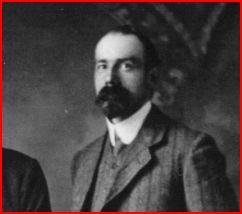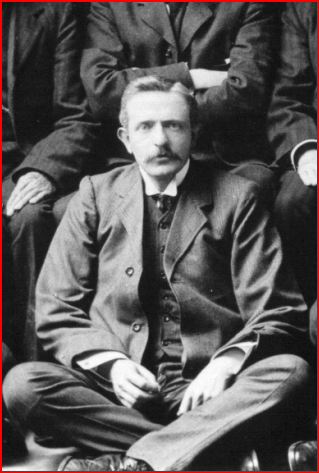
By James Boyd.
By James Boyd.

Having had the privilege of assisting in revision of the proofs of this volume of poems, the author has kindly suggested that I should write a few lines by way of preface; and whilst assenting with some diffidence it is nevertheless a real pleasure to thus identify myself with the truth contained in its pages. I do so the more gladly too as knowing how readers far and wide have appreciated Mr. Boyd's regular articles in the monthly magazine, "Scripture Truth," with the conduct of which I am permitted to be associated.
The poems have been written in leisure moments, on land and sea, throughout a great number of years, whilst their author was moving about in various parts of the world preaching and teaching the things of Jesus Christ; and were committed to paper more to give shape and expression to the writer's own meditations than with specific intent to publish. But several friends, who, with myself, had seen the verse in manuscript, felt that it would be a distinct loss were they to remain inaccessible to the general reader; and it is in response to these representations that the present volume is published.
The poems have their own literary charm and beauty, but it is in their able reiteration of the truth as to the Son of God, that the believer will especially delight: and in this consists their abiding value. Many in number, they have but one theme — the Lord Jesus Christ, the many hued glories of His person and redeeming work. Does the writer depict in scathing language the fallen and corrupt state of every child of Adam's race, it is but to serve as the dark background against which to bring out the infinite perfections and worth of the loving and lowly Saviour of the lost; does biting satire here have place, as it has in Holy Writ, it is, as there, but that clear way may be made for the truth; do we find here and there poetic description of the beauties of nature around, or the wonders of the heavenly bodies in their courses, it is but a prelude to the unfolding of glories that are above the heavens.
In a volume of over three hundred pages, touching on the widest possible range of subjects in the moral universe, it were strange indeed if every expression used were exactly such as one would one's self employ; but these must always be read with their context, and, so read, one cannot but feel deeply thankful to God for the body of sound and healthful doctrine here so convincingly stated.
Especially useful to those who may have lent a careless ear to modern sceptical notions will be such poems as "Talks by the Way," which is really a keen analysis of all the most prevalent philosophies of the day — meeting the erroneous arguments advanced, first on their own ground in such wise as to show their folly, and then unwaveringly presenting the Christ of God as the true solution of every question, and the only real Satisfier of the heart.
May God graciously bless these writings to the uplifting of the name of His Son our Lord, who alone is worthy.
H. D. R. Jameson.

After many years of true friendship with the Author, it gives me pleasure, in response to a request by him to write a few lines at the opening of this Volume.
Those who were fortunate enough to procure a copy of the previous Volume by the same writer “The Story of the Glory, and other Poems” (which is now out of print), will be glad of the opportunity of having another Volume somewhat similar in character, and those who desired to get a copy but could not, will also appreciate this fresh Volume. In the following pages will be found Poems of high spiritual tone and also varied spiritual experience, and there will be found many other beautiful Poems which will suit the taste of a large circle of poem lovers. Poems—like Poets—are born, not made, and there is therefore a particular freshness and originality in all Mr. Boyd’s compositions.
The many friends in this and other lands who have appreciated the ministry, both oral and written, of the Author, will be pleased to have this book, which is a good example of Mr. Boyd’s activities in a field less familiar to them.
It is earnestly hoped that the blessing which has accompanied Mr. Boyd’s labours for so many years, will also, through the goodness of God, accompany this Volume.
Robert Whyte
“Belverley”
Trinity,
Edinburgh